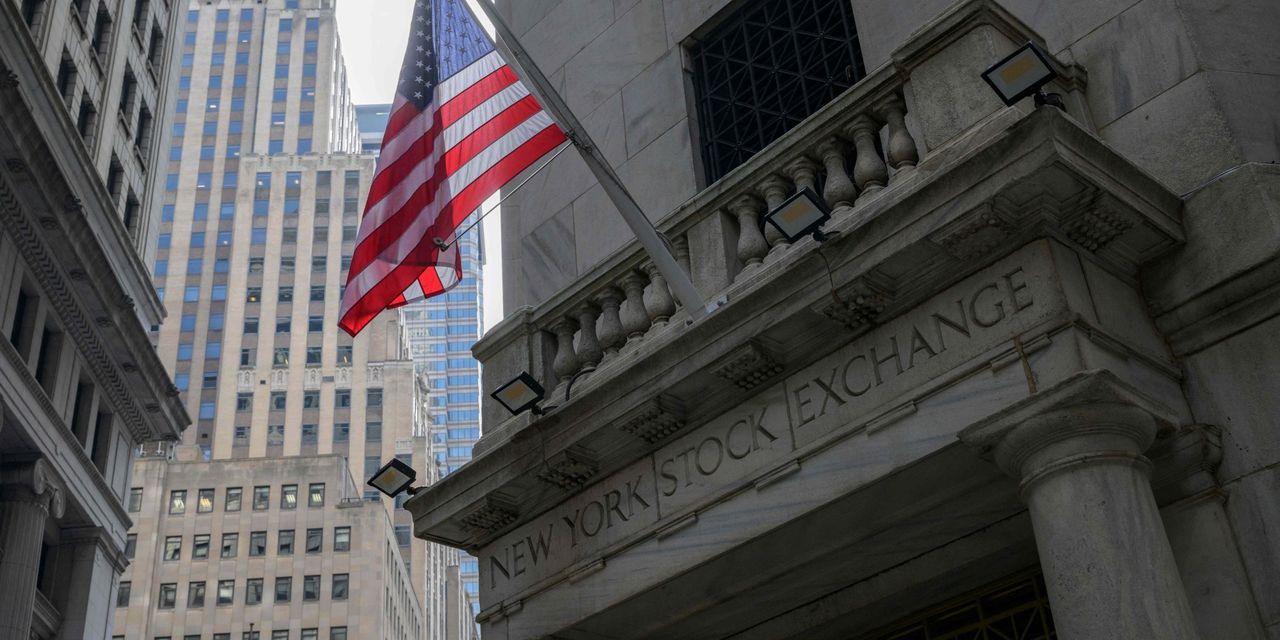Major U.S. stock benchmarks remained down for the month on Wednesday, after a choppy trading session ended with mixed results as investors weighed the latest inflation report.
“The Federal Reserve may have gained some traction against inflation, but the inflation problem is far from finished,” said First Trust economists in a note Wednesday. “The worst part of today’s report was that real average hourly earnings declined 0.5% in August, taking a large bite out of consumer spending power.”
Stock-market investors will get an update on the health of the consumer on Thursday morning, with U.S. retail sales data due out before the market’s open. The First Trust economists said that equity investors should stay “vigilant as we navigate these unprecedented times,” while cautioning that they still expect that “a recession is on the way.”
The Bureau of Labor Statistics said Wednesday that U.S. inflation rose 0.6% in August, as measured by the consumer-price index, and climbed 3.7% in the past 12 months as the year-over-year rate accelerated from 3.2% in July.
“We’re nowhere near” the 2% inflation rate targeted by the Fed, said Bob Doll, chief investment officer at Crossmark Global Investments, in a phone interview Wednesday. He worries that “inflation is coming down too slow.”
Core inflation, which excludes energy and food prices, increased 0.3% last month, CPI data showed, which was slightly hotter than the forecast from economists polled by Wall Street. Still, the year-over-year rate eased to 4.3%, from the 4.7% rise over the 12 months through July.
Read: CPI shows biggest increase in U.S. inflation in 14 months
“The Fed’s battle against inflation is not over, and a deeper dive under the inflation hood confirms this,” the First Trust economists said.
“Rental inflation – both for actual tenants and the imputed rental value of owner-occupied homes – continues to run hot, up 0.4% for the month and running above a 5% annualized rate over three-, six-, and twelve-month timeframes,” they wrote.
“Meanwhile, a subset category of inflation that the Fed is watching closely – known as the ‘Super Core’ – which excludes food, energy, other goods, and housing rents, rose 0.4% in August and is up 4.0%” in the last twelve months, according to the First Trust note.
Considering the U.S. labor market’s resilience so far, it appears that the Fed has “plenty of reason to keep monetary policy tight in the months to come,” the First Trust economists said.
Crossmark’s Doll said that expectations for S&P 500 earnings growth next year appear too strong, while companies may see “margin pressure” in the third quarter. Companies could have more trouble passing through price increases to the consumer, while their own costs, including labor and raw materials, risk going up more than their revenue, he said.
Meanwhile, the S&P 500 will probably remain in a trading range this year of 4,200 to 4,600 until investors have “a better idea” of where the U.S. economy is going, said Doll.
The U.S. stock market closed mixed Wednesday, with the S&P 500
SPX
edging up 0.1% to close at about 4,467, according to FactSet data. The Dow Jones Industrial Average
DJIA
fell 0.2%, while the technology-heavy Nasdaq Composite
COMP
rose 0.3%.
Wednesday’s close left the Dow down 0.4% so far in September, while the S&P 500 was off 0.9% and the Nasdaq had 1.6% losses month to date, FactSet data show.
Read: When will consumers stop buying more stuff? It’s a key question for the stock market.
In the bond market, Treasurys rates fell in the wake of Wednesday’s inflation report, with the yield on the 10-year Treasury note
BX:TMUBMUSD10Y
declining 1.5 basis points to 4.248% while the two-yields
BX:TMUBMUSD02Y
slipped 1.9 basis points to 4.984%, according to Dow Jones Market Data.
The bond market’s reaction to the CPI report was “benign,” said John Madziyire, senior portfolio manager and head of U.S. Treasuries and TIPS within Vanguard Group’s fixed-income group, in a phone interview Wednesday.
With inflation declining from last year’s peak, the labor market “coming into balance” and growth “doing well,” there’s no need for the Fed to be “rocking the boat too much” with more interest rate increases this month or perhaps even for the rest of this year, in his view.
Meanwhile, the consumer appears “very resilient,” said Madziyire. As for Thursday’s report on retail sales in the U.S. during August, he said that “pretty much everyone agrees there is going to be a pullback,” after data for July was helped by strong purchases on Amazon Prime Day.
Read the full article here



